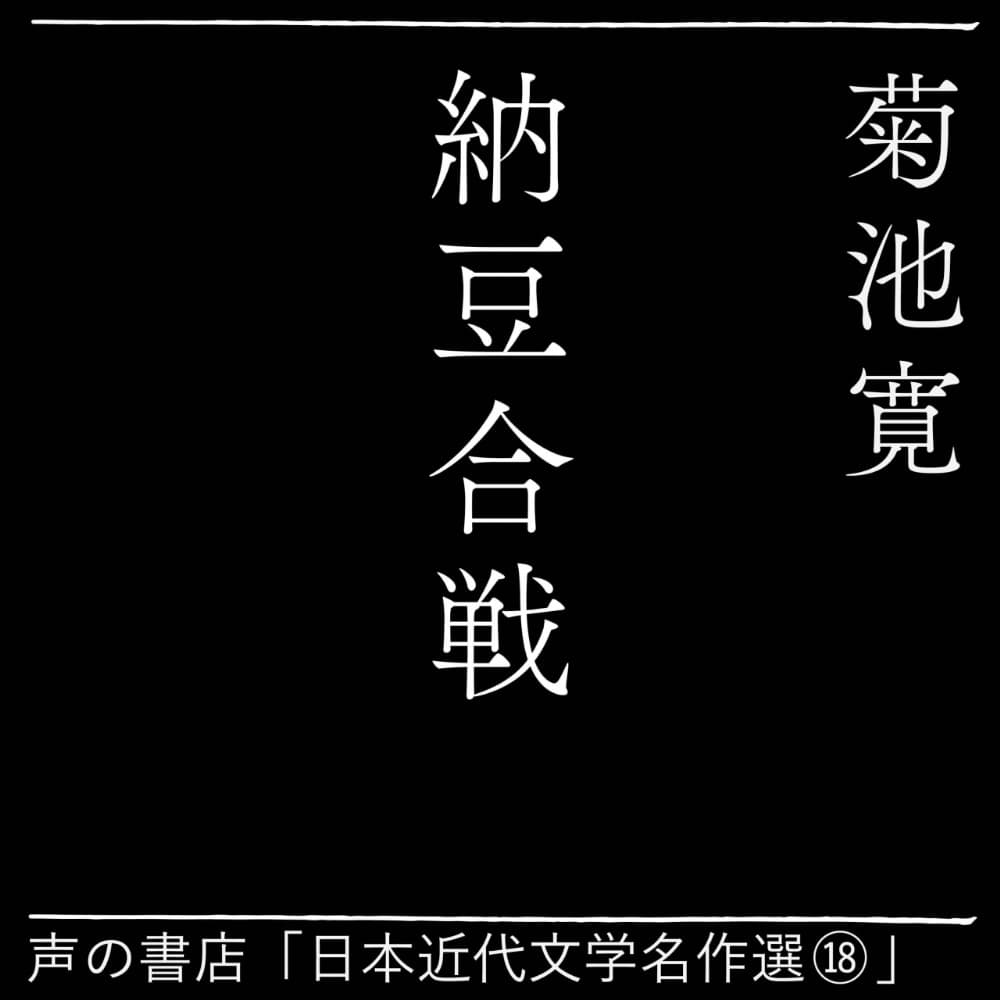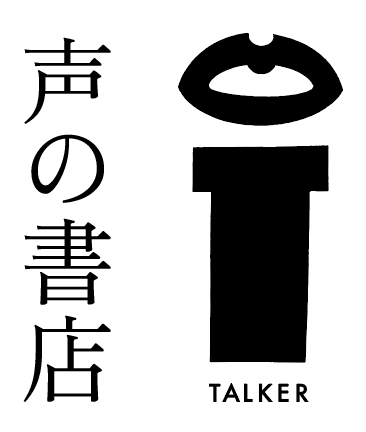
Natto Gassen(Natto battle)
【Masterpieces of Modern Japanese Literature⑱】
By Kan Kikuchi
Narrated by Nana Nagao
Buy from Retailers
A short story by Kan Kikuchi
“Have you ever heard the voice of a natto seller? If you wake up early instead of sleeping in, you will hear their sorrowful chant of *”Natto, natto!”* around six or seven in the morning. In winter, this happens when the sun has not yet risen, in the dim morning light. However, natto sellers are not very common in the countryside, so those living in rural areas may have never heard them. But in the streets of Tokyo, at least one or two natto sellers make their rounds every morning without fail. I am, if anything, a late riser. Still, on occasion, I wake up while it is still dark and, from my bed, I often hear the plaintive voice of a woman calling out, *”Natto, natto!”* Each time I hear that voice, I remember an incident from my childhood, when I was still in elementary school—an incident where I played a prank on an old woman who sold natto.“ーー
Author : Kan Kikuchi
Narrator : Nana Nagao
Produced by:Koé no Shoten
Special Thanks:Shigoto, Inc.
Listening Length:00:13:23
Release Date:2024/8/22
*For how to listen, pricing, purchase methods, payment options, and more, please check each distribution site.
ABOUT THE AUTHOR
1888 – 1948
Born in Takamatsu, Kagawa Prefecture. His real name was Hiroshi. He graduated from Kyoto Imperial University. During his university years, he studied modern British drama and participated in the third and fourth iterations of Shinshichō (“New Tides of Thought”). In 1916, he published Okujō no Kyōjin(”The Housetop Madman”)and Chichi Kaeru (”The Father returns”). After graduating, he joined the Jiji Shinpō* newspaper as a journalist. While working as a reporter, he published Mumei Sakka no Nikki(”Anonymous Writer’s Diary”)and Tadanaokyō Gyōjōki (”On the Conduct of Lord Tadanao”) in Chūō Kōron magazine in 1918. The following year, in 1919, he released Onshū no Kanata ni (”Beyond the Pale of Vengeance”). Afterward, he dedicated himself fully to writing and, in the following year, serialized Shinju Fujin(”Madame Pearl”) in both the Osaka Mainichi Shimbun and the Tokyo Mainichi Shimbun. He also published works such as Tōjūrō no Koi (”Tōjūrō’s love”), Han-jijo-den (”Semi-Autobiography”), Teiso mondo(”The Chastity Debate”), and Junange(”Passion flowers “). In 1923, he declared, “I have grown tired of speaking only when asked,” and founded the literary magazine Bungei Shunjū. He played a significant role in establishing the Akutagawa Prize, the Naoki Prize, and the Japan Writers’ Association, among many other contributions to the literary world.
